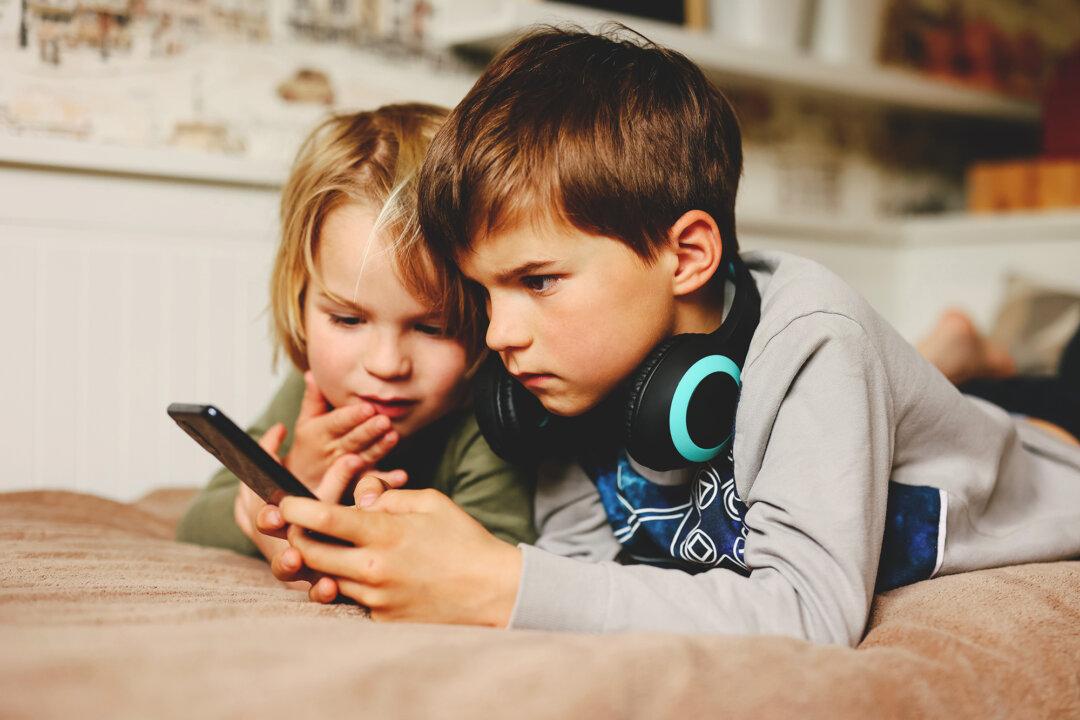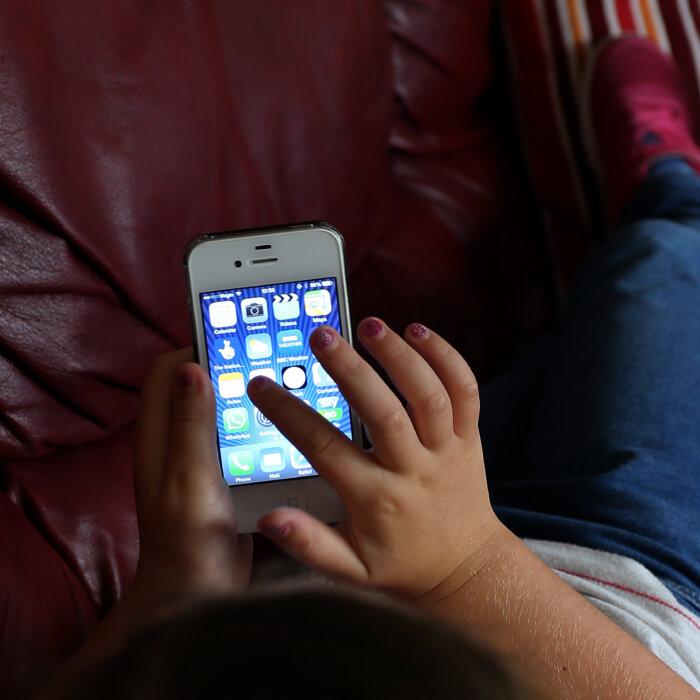“I want the minds and hearts of the next generation to be shielded from the harms of digital technologies, and I want to help parents who are on the frontlines do that,” she said.
We asked her for advice for parents who wish to protect their children from the increasingly apparent negative effects of smartphones.
!["The Tech Exit" by Clare Morell. "This book offers an escape plan for parents, a way out of screens if they’ve already given them to their kids [who] need to detox, and a guidebook of steps to follow to exit these technologies over the long term," she said. (Courtesy of Clare Morell)](/_next/image?url=https%3A%2F%2Fimg.theepochtimes.com%2Fassets%2Fuploads%2F2025%2F06%2F05%2Fid5868605-0Z-Fo_0g.png&w=1200&q=75)
Screen time limits don’t map onto a child’s mental and emotional time. They can be mentally living in the virtual world long after they leave it. And even a small amount of time each day creates a strong craving for more because the technology is inherently addicting.
It would be like a parent asking how many cigarettes are OK to let a child smoke each day. The design and substance of it, even in small amounts, is inherently harmful to kids. And parental controls don’t give parents real control. It’s all too easy for children to come across pornography and other inappropriate content through apps on a smartphone. There are too many portals to the online world to effectively oversee and too many bugs and loopholes in the controls. They aren’t fully effective.
But, I will acknowledge [that] there are instances where a computer could be useful for an educational assignment or research project or for allowing a child to develop coding skills or other hard computer science skills, in which case I recommend that families allow children to use computers and the internet only publicly and purposefully, so that others can walk by and see what they’re doing and so they have a clear, time-limited purpose they are using it for and it doesn’t turn into mindlessly scrolling.
Likewise, for televisions, families can use these together for good purposes, such as watching a family movie or sporting event together. So I advise families that the bigger the screen, the better so that you are enjoying this screen entertainment as a shared activity and that [its use] is sparing, that TV watching is not a daily habit but a treat on the weekends or for special occasions.

And the screen use is not only an opportunity cost of the child’s time spent rather than doing another real-world activity, but the screen also changes their tastes and desires so that they become desensitized to real-world pleasures. The beauty of the natural world and real-life activities becomes boring and mundane to them. So it’s not only an opportunity cost of their time but also their affections.
A detox means no tablets, no smartphones, no internet, no social media, and no video games, and the only use of a TV being a family movie on a Friday night. Make a plan for the 30 days of what screen-free activities and tasks around the house children will do instead and put that plan on the wall next to the calendar. Try it out and see the benefits for yourself.
The first two weeks may be hard, but once you get over the hump, children will start to learn how to entertain themselves and they’ll stop asking for the screens. And it’s never too late, even for teens. Even if you only have one year left with your teen before they go to college, let that be a year free of a smartphone and social media, where you give them more real-world freedoms instead and help them develop the skills and maturity they need for entering adult life.
This means if a child needs to do a research project for school, they do it on a family computer [located] where everyone can walk by and see what they are doing, and they go on for that time-limited purpose and then get off; there is no aimless surfing of the internet. And then screens for entertainment, such as a TV, are only used together as a family as a treat on occasion and not as a daily habit.
There are thousands of apps available. Most apps have their own in-app browsers, their own portals to the internet that most external parental controls and filters can’t access or block, and even innocuous apps such as educational games have social media components where complete strangers can message your kids. It is simply impossible for a parent to completely protect their child from every possible threat that comes through a smartphone. There are just too many entry points and too many loopholes and bugs for parents to shut down, and the sheer size and portability of a smartphone make it very secretive and private and difficult for a parent to see into.
While the smartphone is most dangerous, other interactive screens such as tablets and video games are also overstimulating to a child’s nervous system and also introduce potential dangers to a child. A tablet is a very slippery slope into a smartphone, so starting young, resist interactive screens.
Finally, a neglected effect of screens is the eye damage this is causing in children. An ophthalmologist friend of mine is seeing 8-year-old kids coming into her practice struggling with chronic dry eye because their eye oil glands have dried up from staring at screens. When a child stares at a screen, they aren’t blinking; when the eye isn’t blinking, it isn’t releasing oil from the oil glands and the glands dry up. Once they dry up, they are gone—you can’t get them back. So these children will have to artificially lubricate their eyes for the rest of their lives or they risk scar tissue building up, which can ultimately lead to blindness. I asked her how much time on a screen is too much, and she told me we don’t really know, but all she could tell me is that we should be drastically minimizing the amount of time children are spending on screens.
Also, currently no parental consent is required for a child to create a social media account or for a child to download an app. The government should pass laws to require parental consent so that parents’ rightful authority over their children is respected in the online world.








